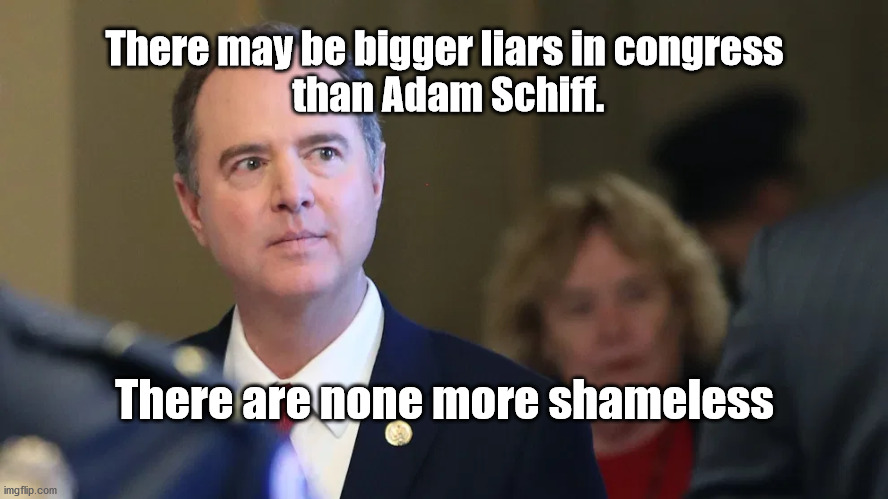Good news for Socialists. Treasury Secretary Yellen is going to decide which depositors get fully paid and which can go bankrupt. No need for laws, just Yellen and her “objective” views. Watch as the Communist Chinese and Democrat donors and friends get fully paid—like she is doing for New3som, China and other with the Silicon Valley Bank. Watch for lawsuits!
Treasury Secretary Yellen says not all uninsured deposits will be protected in future bank failures

Christina Wilkie, CNBC, 3/17/23
KEY POINTS
- Treasury Secretary Janet Yellen told senators that government refunds of uninsured deposits will not be extended to every bank that fails, only those that pose systemic risk to the financial system.
- Yellen has been at the center of an emergency program to refund billions of dollars in uninsured deposits held by clients of the failed Silicon Valley Bank and the shuttered Signature Bank.
- But with markets recovering somewhat, lawmakers were concerned these backstops could become a new norm for big banks, giving “too big to fail” banks an unfair advantage over community lenders.
- WASHINGTON — Treasury Secretary Janet Yellen sought to reassure markets and lawmakers on Thursday that the federal government is committed to protecting U.S. bank deposits following the failure of Silicon Valley Bank and Signature Bank over the weekend.
“Our banking system remains sound and Americans can feel confident that their deposits will be there when they need them,” Yellen said in testimony before the Senate Finance Committee.
Under questioning, however, Yellen admitted that not all depositors will be protected over the FDIC insurance limits of $250,000 per account as they did for customers of the two failed banks.
Yellen has been at the center of emergency federal efforts this past week to recover deposits for account holders at two failed banks, the California-based SVB and the crypto-heavy Signature Bank, based in New York.
A majority of SVB’s customers were small tech companies, venture capital firms and entrepreneurs who used the bank for day-to-day cash management to run their businesses. Those customers had $175 billion on deposit with tens of millions in individual accounts. That left SVB with one of the highest shares of uninsured deposits in the country when it collapsed, with 94% of its deposits landing above the FDIC’s $250,000 insurance limit, according to S&P Global Market Intelligence data from 2022.
U.S. bank regulators announced a plan Sunday to fully insure all deposits at the two failed banks, including those above the $250,000 limit covered by traditional FDIC insurance. The additional protection will be paid for out of a special fund made up of fees levied on all FDIC-insured institutions.
In addition, the Federal Reserve loosened its borrowing guidelines for banks seeking short-term funding through its so-called discount window. It also set up a separate unlimited facility to offer one-year loans under looser terms than usual to shore up troubled banks facing a surge in cash withdrawals. Both programs are being paid for through industry fees, not by taxpayers, the Biden administration has emphasized.
“This will help financial institutions meet the needs of all of their depositors,” Yellen said. “This week’s actions demonstrate our resolute commitment to ensure that depositors’ savings remain safe.”
Democrats and Republicans in Congress have largely supported the emergency actions taken in the past week. But with markets recovering somewhat, lawmakers Thursday questioned Yellen about whether backstops for big banks will become a new norm, and what that could mean for community lenders.
“I’m concerned about the precedent of guaranteeing all deposits and the market expectation moving forward,” Sen. Mike Crapo, R-Idaho, the committee’s ranking member, said in his opening remarks.
Republican Sen. James Lankford of Oklahoma pressed Yellen about how widely the uninsured deposit backstops will apply across the banking industry.
“Will the deposits in every community bank in Oklahoma, regardless of their size, be fully insured now?” asked Lankford. “Will they get the same treatment that SVB just got, or Signature Bank just got?”
Yellen acknowledged they would not.
Uninsured deposits, she said, would only be covered in the event that a “failure to protect uninsured depositors would create systemic risk and significant economic and financial consequences.”
Lankford said the impact of this standard would be that small banks would be less appealing to depositors with more than $250,000, the current FDIC insurance threshold.
“I’m concerned you’re … encouraging anyone who has a large deposit at a community bank to say, ‘We’re not going to make you whole, but if you go to one of our preferred banks, we will make you whole.’”
“That’s certainly not something that we’re encouraging,” Yellen replied.
Members of Congress are currently weighing a number of legislative proposals intended to prevent the next Silicon Valley Bank-type failure.
One of these is an increase in the $250,000 FDIC insurance limit, which several senior Democratic lawmakers have called for in the wake of SVB’s collapse.
Following the 2008 financial crisis, Congress raised the FDIC limit from $100,000 to $250,000, and approved a plan under which big banks contribute more to the insurance fund than smaller lenders.



